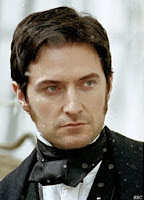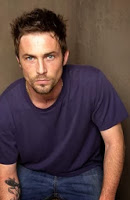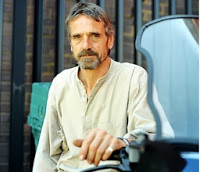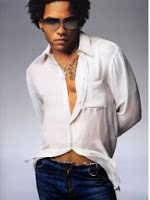I have with me Jac Wright on Njkinny’s World of Books for virtual coffee whose latest book,The Reckless Engineer
Jac Wright is a published poet, published author, and an electronics engineer educated at Stanford, University College London, and Cambridge who lives and works in England. Jac studied English literature from the early age of three, developing an intense love for poetry, drama, and writing in Trinity College Speech & Drama classes taken every Saturday for fourteen years, and in subsequent creative writing classes taken during the university years. A published poet, Jac’s first passion was for literary fiction and poetry writing as well as for the dramatic arts. You will find these influences in the poetic imagery and prose, the dramatic scene setting, and the deep character creation.
These passions – for poetry, drama, literary fiction, and electronic engineering – have all been lovingly combined to create the first book in the literary suspense series, The Reckless Engineer . There are millions of professionals in high tech corporate environments who work in thousands of cities in the US, the UK, and the world such as engineers, technicians, technical managers, investment bankers, and corporate lawyers. High drama, power struggles, and human interest stories play out in the arena every day. Yet there are hardly any books that tell their stories; there are not many books that they can identify with. Jac feels compelled to tell their stories in The Reckless Engineer
. There are millions of professionals in high tech corporate environments who work in thousands of cities in the US, the UK, and the world such as engineers, technicians, technical managers, investment bankers, and corporate lawyers. High drama, power struggles, and human interest stories play out in the arena every day. Yet there are hardly any books that tell their stories; there are not many books that they can identify with. Jac feels compelled to tell their stories in The Reckless Engineer series.
series.
These passions – for poetry, drama, literary fiction, and electronic engineering – have all been lovingly combined to create the first book in the literary suspense series, The Reckless Engineer
 . There are millions of professionals in high tech corporate environments who work in thousands of cities in the US, the UK, and the world such as engineers, technicians, technical managers, investment bankers, and corporate lawyers. High drama, power struggles, and human interest stories play out in the arena every day. Yet there are hardly any books that tell their stories; there are not many books that they can identify with. Jac feels compelled to tell their stories in The Reckless Engineer
. There are millions of professionals in high tech corporate environments who work in thousands of cities in the US, the UK, and the world such as engineers, technicians, technical managers, investment bankers, and corporate lawyers. High drama, power struggles, and human interest stories play out in the arena every day. Yet there are hardly any books that tell their stories; there are not many books that they can identify with. Jac feels compelled to tell their stories in The Reckless Engineer series.
series.
Jac also writes the literary short fiction series, Summerset Tales, in which he explores characters struggling against their passions and social circumstances in the semi-fictional region of contemporary England called Summerset, partly the region that Thomas Hardy called Wessex. Some of the tales have an added element of suspense similar to Roald Dahl’s Tales of the Unexpected. The collection is published as individual tales in the tradition of Charles Dickens’ The Pickwick Papers and Thomas Hardy’s Wessex Tales. The first tale, The Closet, accompanies the author’s first full-length literary suspense title, The Reckless Engineer .
.
 .
.
The Reckless Engineer
Welcome to Njkinny’s World of Books, Jac and congratulations on getting an Edgar nomination for your latest book, The Reckless Engineer
Let’s start the interview.
Q1. Where do you call home?
I live in the South of England. My engineering contracts take me around the country sometimes, such as up to Scotland or the Midlands, but I live in the South of England. I have lived in Portsmouth, Bath, Bristol, Kent, and Cambridge and I now live in London.
Q2. What date were you born?
Q1. Where do you call home?
I live in the South of England. My engineering contracts take me around the country sometimes, such as up to Scotland or the Midlands, but I live in the South of England. I have lived in Portsmouth, Bath, Bristol, Kent, and Cambridge and I now live in London.
Q2. What date were you born?
The same day that Charles Darwin was born, the 19th of April. I like to think that is significant, but it is not. The April birthdate makes me an Aries.
Q3. What made you decide to write The Reckless Engineer ?
?
I had been writing poetry and short stories for some time and I knew I wanted to write a full-length fiction series. One of the short stories, The Closet, has a plot about a protagonist who is blinded by romantic love and gets himself into serious trouble from this. In The Closet I am right inside my protagonist’s head using a very close third person POV and telling the reader about his angst, pain, moments of joy, and ups and downs–telling the reader how it feels for him. I had wanted to do its dual or complementary plot where I hardly give my protagonist, Jack Connor (who gets himself into trouble because he is weak in love) a voice at all, but look at its impact from the viewpoints of those around him. That is how the plot of The Reckless Engineer came about.
came about.
I also knew I wanted it to be a series featuring and electrical engineer like me, or more like someone I should like to be. That is how Jeremy Stone came about. He lives the life I want and I live it through him.
I also knew that I wanted set the first book in Portsmouth because the beautiful seaside town is the birthplace of Charles Dickens. My mother loves Charles Dickens’ work and some of the earliest memories I have are of her reading Oliver Twist and David Copperfield to me. I also read a lot of Dickens myself as soon as I could read.
Q4. How much research went into your book?
Being an electronic engineer I knew what I was writing about the field. I also have two best friends, one of whom is an electrical engineer and the other is a barrister. I followed my friend who is a barrister on his cases from initial arrest to appeals and took a lot of advice from him to get the legal aspects right.
I am also qualified in Computer Science and had done a research contract in bio-informatics. Hence, it was not hard for me to find out about the chemical processes involved in the composition of the poison.
Once I knew I wanted to set the story in Portsmouth, I moved there, mainly to write the story. Even after moving out of Portsmouth I took time off and checked myself into a seaside hotel there to help me write some of the scenes. I had also done work contracts in Scotland.
I had lived and worked in London for many years and so the scenes in London came naturally. I even volunteered to help a friend with the back stage production of a play in the London West End to write the scene set at the Gielgud Theatre.
Q5. As an engineer myself, I find your background in both engineering and literature fascinating. How much of your own experiences were you able to include in The Reckless Engineer ?
?
A lot of my own experience in the engineering field factors into The Reckless Engineer . There hasn’t been a hero who is an engineer since Barney in the Mission Impossible series; and Q in James Bond is supporting cast. There are so many medical dramas on TV. Where are the engineering dramas? I wanted young adults to see how enjoyable, glamorous, and cool engineering is and create a hero that will attract youngsters to its various fields such as electronics, civil engineering, petroleum engineering, chemical engineering, computer science etc. As you might have noticed my series lead, Jeremy, has an educational background similar to me.
. There hasn’t been a hero who is an engineer since Barney in the Mission Impossible series; and Q in James Bond is supporting cast. There are so many medical dramas on TV. Where are the engineering dramas? I wanted young adults to see how enjoyable, glamorous, and cool engineering is and create a hero that will attract youngsters to its various fields such as electronics, civil engineering, petroleum engineering, chemical engineering, computer science etc. As you might have noticed my series lead, Jeremy, has an educational background similar to me.
Q3. What made you decide to write The Reckless Engineer
 ?
?I had been writing poetry and short stories for some time and I knew I wanted to write a full-length fiction series. One of the short stories, The Closet, has a plot about a protagonist who is blinded by romantic love and gets himself into serious trouble from this. In The Closet I am right inside my protagonist’s head using a very close third person POV and telling the reader about his angst, pain, moments of joy, and ups and downs–telling the reader how it feels for him. I had wanted to do its dual or complementary plot where I hardly give my protagonist, Jack Connor (who gets himself into trouble because he is weak in love) a voice at all, but look at its impact from the viewpoints of those around him. That is how the plot of The Reckless Engineer
 came about.
came about.I also knew I wanted it to be a series featuring and electrical engineer like me, or more like someone I should like to be. That is how Jeremy Stone came about. He lives the life I want and I live it through him.
I also knew that I wanted set the first book in Portsmouth because the beautiful seaside town is the birthplace of Charles Dickens. My mother loves Charles Dickens’ work and some of the earliest memories I have are of her reading Oliver Twist and David Copperfield to me. I also read a lot of Dickens myself as soon as I could read.
Q4. How much research went into your book?
Being an electronic engineer I knew what I was writing about the field. I also have two best friends, one of whom is an electrical engineer and the other is a barrister. I followed my friend who is a barrister on his cases from initial arrest to appeals and took a lot of advice from him to get the legal aspects right.
I am also qualified in Computer Science and had done a research contract in bio-informatics. Hence, it was not hard for me to find out about the chemical processes involved in the composition of the poison.
Once I knew I wanted to set the story in Portsmouth, I moved there, mainly to write the story. Even after moving out of Portsmouth I took time off and checked myself into a seaside hotel there to help me write some of the scenes. I had also done work contracts in Scotland.
I had lived and worked in London for many years and so the scenes in London came naturally. I even volunteered to help a friend with the back stage production of a play in the London West End to write the scene set at the Gielgud Theatre.
Q5. As an engineer myself, I find your background in both engineering and literature fascinating. How much of your own experiences were you able to include in The Reckless Engineer
 ?
?A lot of my own experience in the engineering field factors into The Reckless Engineer
 . There hasn’t been a hero who is an engineer since Barney in the Mission Impossible series; and Q in James Bond is supporting cast. There are so many medical dramas on TV. Where are the engineering dramas? I wanted young adults to see how enjoyable, glamorous, and cool engineering is and create a hero that will attract youngsters to its various fields such as electronics, civil engineering, petroleum engineering, chemical engineering, computer science etc. As you might have noticed my series lead, Jeremy, has an educational background similar to me.
. There hasn’t been a hero who is an engineer since Barney in the Mission Impossible series; and Q in James Bond is supporting cast. There are so many medical dramas on TV. Where are the engineering dramas? I wanted young adults to see how enjoyable, glamorous, and cool engineering is and create a hero that will attract youngsters to its various fields such as electronics, civil engineering, petroleum engineering, chemical engineering, computer science etc. As you might have noticed my series lead, Jeremy, has an educational background similar to me.
I have worked in most of the fields I write about in the book–electronics, computer science, petroleum engineering, bio-informatics etc. It was easy, for example, to use my knowledge gained from bio-engineering contracts in drug design to find out the process for synthesizing the poison.
As you know, engineers are problem solvers. They are very bright, resourceful, creative, inquisitive, observant, and highly skilled. You put a problem before us and we WILL come up with a solution that will surprise everybody. These are character traits that are ideally suited to create a brilliant amateur detective.
Q6. Do you have any unique talents or hobbies?
Writing is my hobby. I am an Electronics Engineer by day and moonlight as a writer. I am dual qualified in Computer Science and Electronic Engineering with specialization in Machine Learning or what is commonly known as “Artificial Intelligence.” There is nothing I cannot do that can be done in software.
Q6. Do you have any unique talents or hobbies?
Writing is my hobby. I am an Electronics Engineer by day and moonlight as a writer. I am dual qualified in Computer Science and Electronic Engineering with specialization in Machine Learning or what is commonly known as “Artificial Intelligence.” There is nothing I cannot do that can be done in software.
I used to be an amateur photographer in the good old days when photographs were taken with a manual camera and developed in a dark room, but I have drifted away from it since everything became automatic and digital.
Q7. What do you do to relax?
I read and write to relax. I also watch a good number of DVDs and my favourite TV programs like Dexter, The Good Wife, and Criminal Minds. I love bodies of water. So in the evenings I go running by the sea or along the bank of a river depending on where I am.
Q8. Tell us about something about yourself that you would like to share.
I am both Buddhist and Christian (Protestant). It is easy to easy to reconcile being a Christian as a Buddhist as Buddhism is highly tolerant of anything that is “good”; but “He is a Jealous God” and it is difficult to do it the other way round. However, I have managed to reconcile both into a sort of personal philosophy by realising that Buddhism is philosophy and Christianity is a religion. I am only moderately (not excessively) religious, though.
Q9. Where is one place in the world that you would really love to visit someday?
Italy. I love everything I hear and see in pictures about Italy. I love it as a setting for books too, especially Patricia Highsmith’s The Talented Mr. Ripley; and I have just started reading Donna Leon’s mystery series set in Venice.
Q10. What is your favorite positive saying?
“Do not dwell in the past, do not dream of the future, concentrate the mind on the present moment.” – Buddha
Q11. Describe your writing process. Do you outline, plot and plan, or is your writing more organic?
Oh no, I cannot work to such a “surgical” process as a set plot, a plan, and a schedule. If I do, it comes out feeling contrived and I trash it.
Q7. What do you do to relax?
I read and write to relax. I also watch a good number of DVDs and my favourite TV programs like Dexter, The Good Wife, and Criminal Minds. I love bodies of water. So in the evenings I go running by the sea or along the bank of a river depending on where I am.
Q8. Tell us about something about yourself that you would like to share.
I am both Buddhist and Christian (Protestant). It is easy to easy to reconcile being a Christian as a Buddhist as Buddhism is highly tolerant of anything that is “good”; but “He is a Jealous God” and it is difficult to do it the other way round. However, I have managed to reconcile both into a sort of personal philosophy by realising that Buddhism is philosophy and Christianity is a religion. I am only moderately (not excessively) religious, though.
Q9. Where is one place in the world that you would really love to visit someday?
Italy. I love everything I hear and see in pictures about Italy. I love it as a setting for books too, especially Patricia Highsmith’s The Talented Mr. Ripley; and I have just started reading Donna Leon’s mystery series set in Venice.
Q10. What is your favorite positive saying?
“Do not dwell in the past, do not dream of the future, concentrate the mind on the present moment.” – Buddha
Q11. Describe your writing process. Do you outline, plot and plan, or is your writing more organic?
Oh no, I cannot work to such a “surgical” process as a set plot, a plan, and a schedule. If I do, it comes out feeling contrived and I trash it.
Usually the core idea of the plot, the main characters, and the setting comes to me inextricably interwoven together in a moment of unexpected inspiration, like a disjointed dream or a segments of a movie, and then it nags at me until I put it down on paper.
For example, this June I woke up with this image of a fugitive, a man escaping from the van transporting him from prison to the courts that had had an accident and overturned by the roadside. Prisoners wear regular clothes in England and are not chained. He runs into the crowds and a bus parked behind a mall to hide among the people only to find that it is a film set. The actor playing a main character of the movie and the director are having a fight. The actor suddenly punches the director in the face who falls backward. My protagonist fugitive hiding among the supporting film crew catches him and breaks the fall. The director gets up, wipes the blood off his nose, fires the main actor loudly, and asks him to get out of his movie set. He turns to my protagonist and asks: ‘You there, what’s your name?’ ‘Art Miller,’ he gives a fake name. ‘Art, you are playing Michael Fallon. His trailer is yours now. Go with my crew and get dressed.’ And there I have the plot, the main characters, and the first chapter of my standalone, In Plain Sight.
After this initial idea comes to me, I give my characters a psychology, keep them true to it, and let them drive the story forward. I became interested in Jungian and Freudian psychology during, again, my liberal arts education at Stanford and I have studied both schools of psychology. I apply these theories and experiences to my characters.
For The Reckless Engineer , the plot is a dual or the complementary plot of the idea I had for writing The Closet from my short fiction collection, Summerset Tales. I wrote The Closet first, looking at the troubles of a guy who is blinded by passion and romantic love from his own point of view. In that story I am right inside my protagonist’s head, telling the reader about the angst, the passion, the pain … how it feels for him.
, the plot is a dual or the complementary plot of the idea I had for writing The Closet from my short fiction collection, Summerset Tales. I wrote The Closet first, looking at the troubles of a guy who is blinded by passion and romantic love from his own point of view. In that story I am right inside my protagonist’s head, telling the reader about the angst, the passion, the pain … how it feels for him.
After this initial idea comes to me, I give my characters a psychology, keep them true to it, and let them drive the story forward. I became interested in Jungian and Freudian psychology during, again, my liberal arts education at Stanford and I have studied both schools of psychology. I apply these theories and experiences to my characters.
For The Reckless Engineer
 , the plot is a dual or the complementary plot of the idea I had for writing The Closet from my short fiction collection, Summerset Tales. I wrote The Closet first, looking at the troubles of a guy who is blinded by passion and romantic love from his own point of view. In that story I am right inside my protagonist’s head, telling the reader about the angst, the passion, the pain … how it feels for him.
, the plot is a dual or the complementary plot of the idea I had for writing The Closet from my short fiction collection, Summerset Tales. I wrote The Closet first, looking at the troubles of a guy who is blinded by passion and romantic love from his own point of view. In that story I am right inside my protagonist’s head, telling the reader about the angst, the passion, the pain … how it feels for him.
I had for a while wanted to do its dual plot, looking at the same situation from the viewpoints of the people around my protagonist, and this is the plot I use in The Reckless Engineer . This time I hardly give my protagonist, Jack Connor, a voice at all, deliberately keeping him in custody for much of the story. I give everybody around him a voice instead.
. This time I hardly give my protagonist, Jack Connor, a voice at all, deliberately keeping him in custody for much of the story. I give everybody around him a voice instead.
Q12. What are some books or authors would you recommend to our readers?
I hero-worship Patricia Highsmith. She is one writer who does amazingly well with all four aspects of suspense writing that I value – characters, plot, literary prose, and the setting or world building – with primacy given to characters. Her POV is perfect. Her books are a master class in compelling character creation. She is, like me, firmly based in Virginia Woolf’s Bloomsbury school of writing and does almost a close psychoanalysis of her main characters.
I also like Roald Dahl for his suspense fiction. He is the master of the unexpected psychological twist in his writing in the short form. And, of course, I love Charles Dickens.
Out of the modern writers, I like Ian Rankin and Benjamin Black who both write “literary” suspense fiction with descriptive, poetic prose and good character creation. They do, however, write noir which is not really my style.
I also think Gillian Flynn is one writer to watch. The “domestic” psychological thriller sub-genre she has written Gone Girl in is right up my street.
Q13. How long on average does it take you to write a book?
 . This time I hardly give my protagonist, Jack Connor, a voice at all, deliberately keeping him in custody for much of the story. I give everybody around him a voice instead.
. This time I hardly give my protagonist, Jack Connor, a voice at all, deliberately keeping him in custody for much of the story. I give everybody around him a voice instead.Q12. What are some books or authors would you recommend to our readers?
I hero-worship Patricia Highsmith. She is one writer who does amazingly well with all four aspects of suspense writing that I value – characters, plot, literary prose, and the setting or world building – with primacy given to characters. Her POV is perfect. Her books are a master class in compelling character creation. She is, like me, firmly based in Virginia Woolf’s Bloomsbury school of writing and does almost a close psychoanalysis of her main characters.
I also like Roald Dahl for his suspense fiction. He is the master of the unexpected psychological twist in his writing in the short form. And, of course, I love Charles Dickens.
Out of the modern writers, I like Ian Rankin and Benjamin Black who both write “literary” suspense fiction with descriptive, poetic prose and good character creation. They do, however, write noir which is not really my style.
I also think Gillian Flynn is one writer to watch. The “domestic” psychological thriller sub-genre she has written Gone Girl in is right up my street.
Q13. How long on average does it take you to write a book?
It takes a year, while balancing my writing with my other responsibilities. And then it goes through about a month of editing with the publisher.
Q14. If your book was made into a TV series or Movie, what actors would you like to see playing your characters?
Daniel Craig would be good to play the series lead, Jeremy Aiden Stone, though he would have to look a decade younger.

A great alternative would be Scott Eastwood (Clint Eastwood Junior) if his acting abilities are anything like his dad’s, but they would have to age him a decade which I is not hard.

Jessica Biel had the right looks for Caitlin McAllen-Connor, Jack Connor’s wife, with a shorter haircut; and she would have to play the character a stronger personality than she is used to.
Jeremy Irons for Douglas McAllen, Caitlin’s father.
I know Otter looks like Lenny Kravitz. So they will have to cast a new actor in the role.
Q15. What do you have planned for the future?
I have two stories half written – “The Bank Job” (Summerset Tales #2) and Buy, Sell, Murder (The Reckless Engineer #2). Buy, Sell, Murder is set in the London branches of an American investment bank. I hope to finish both in 2014.
I have started the fifth, In Plain Sight, with just the plot and the main characters designed and only the first chapter written. I have a hunch that In Plain Sight is going to be my favorite.
Q15. What do you have planned for the future?
I have two stories half written – “The Bank Job” (Summerset Tales #2) and Buy, Sell, Murder (The Reckless Engineer #2). Buy, Sell, Murder is set in the London branches of an American investment bank. I hope to finish both in 2014.
I have started the fifth, In Plain Sight, with just the plot and the main characters designed and only the first chapter written. I have a hunch that In Plain Sight is going to be my favorite.
Being firm disciple of Virginia Woolf’s Bloomsbury school of writing I have a story planned that is a little similar to Leonard Woolf’s Village in the Jungle that I have not started on yet. This is going to be a work of purely literary fiction without the suspense element.
Q16. How can readers discover more about you and you work?
Website: http://jacwrightbooks.wix.com/jacwright
Blog: http://mysteriescrimethrillers.blogspot.co.uk/
Facebook: https://www.facebook.com/jacwrightbooks
Twitter: @JacWrightBooks
Amazon Author Page: http://www.amazon.com/Jac-Wright/e/B00DAGN3J6
Thanks for talking so candidly to us, Jac. Njkinny’s World of Books wishes you all the best for your future endeavors and we hope to read more from you. 🙂
Read my review of The Reckless Engineer :
:
http://njkinny.blogspot.in/2013/10/arcbookreview-reckless-engineer-by-jac.html
Q16. How can readers discover more about you and you work?
Website: http://jacwrightbooks.wix.com/jacwright
Blog: http://mysteriescrimethrillers.blogspot.co.uk/
Facebook: https://www.facebook.com/jacwrightbooks
Twitter: @JacWrightBooks
Amazon Author Page: http://www.amazon.com/Jac-Wright/e/B00DAGN3J6
Thanks for talking so candidly to us, Jac. Njkinny’s World of Books wishes you all the best for your future endeavors and we hope to read more from you. 🙂
Read my review of The Reckless Engineer
http://njkinny.blogspot.in/2013/10/arcbookreview-reckless-engineer-by-jac.html
Buy Jac’s books:
The Reckless Engineer :
:
Amazon.com: Paperback | Kindle Edition
| Kindle Edition
Amazon.in: Kindle Edition
The Closet (Summerset Tales #1):
The Reckless Engineer
Amazon.com: Paperback
Amazon.in: Kindle Edition
The Closet (Summerset Tales #1):
Amazon: Kindle Edition






I recognize some of those as questions I asked in my interview. I think it is so cool that he is reusing them in other interview posts.